Ditapis dengan
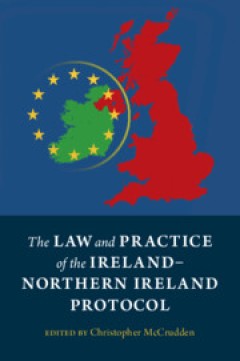
The Law and Practice of the Ireland-Northern Ireland Protocol
The Ireland-Northern Ireland Protocol, part of the Withdrawal Agreement concluded between the European Union and the United Kingdom, is intended to address the difficult and complex impact of Brexit on the island of Ireland, North and South, and between Ireland and Great Britain. It has become an exceptionally important, if controversial, part of the new architecture that governs the relationsh…
- Edisi
- -
- ISBN/ISSN
- 978-1009-10984-0
- Deskripsi Fisik
- 400 hlm.
- Judul Seri
- -
- No. Panggil
- -
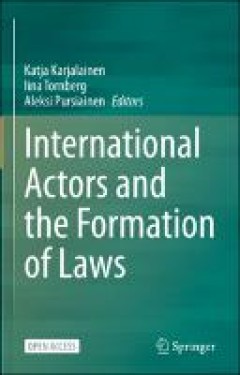
International Actors and the Formation of Laws
This book addresses the discourse that creates, modifies, and reshapes the law, as well as discourse participants. The book focuses on the actors operating in legal regimes and their subtly, bluntly, or even outright aggressive impact on the formation of laws. As the book examines the intersection of domestic, European, international, and even transnational, legal regimes where new law emerges …
- Edisi
- -
- ISBN/ISSN
- 978-3-030-98351-2
- Deskripsi Fisik
- 209 hlm.
- Judul Seri
- -
- No. Panggil
- -
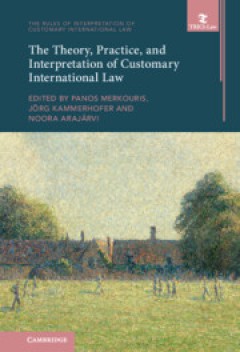
The Theory, Practice, and Interpretation of Customary International Law
This volume discusses the theory, practice, and interpretation of customary international law, as well as new developments and future research trajectories. Combining discussions of familiar concepts with new ideas, it is useful for researchers, scholars, and practitioners of international law. Volume ini membahas teori, praktik, dan interpretasi hukum kebiasaan internasional, serta perkemb…
- Edisi
- -
- ISBN/ISSN
- 978-1-009-02541-6
- Deskripsi Fisik
- 648 hlm.
- Judul Seri
- -
- No. Panggil
- -
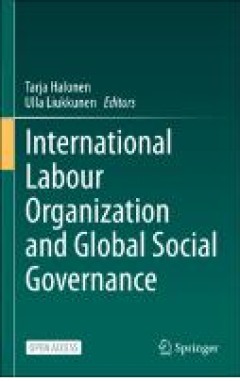
International Labour Organization and Global Social Governance
This open access book explores the role of the ILO (International Labour Organization) in building global social governance from multiple and mutually complementary perspectives. It explores the impact of this UN´s oldest agency, founded in 1919, on the transforming world of work in a global setting, providing insights into the unique history and functions of the ILO as an organization and the…
- Edisi
- -
- ISBN/ISSN
- 978-3-030-55400-2
- Deskripsi Fisik
- 151 hlm.
- Judul Seri
- -
- No. Panggil
- -
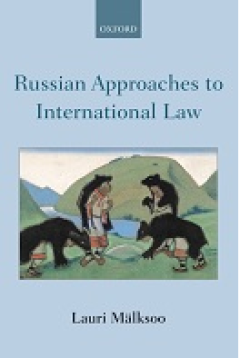
Russian Approaches to International Law
This book examines Russian approaches to international law from three different yet closely interconnected perspectives: history, theory, and recent state practice. The study uses comparative international law as a starting point and argues that in order to understand post-Soviet Russia’s state and scholarly approaches to international law, one should take into account the history of ideas in…
- Edisi
- -
- ISBN/ISSN
- 978-0-19-880804-6
- Deskripsi Fisik
- 241 hlm.
- Judul Seri
- -
- No. Panggil
- -
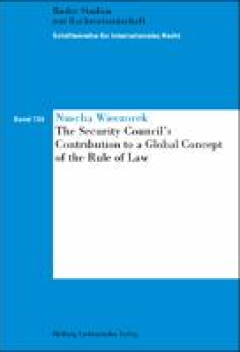
The Security Council's Contribution to a Global Concept of the Rule of Law
Beginning in the 1990s, the concept of the rule of law has been increasingly invoked in UN Security Council resolutions. The Security Council applies the principle of the rule of law as an instrument to fulfil its core mandate of restoring and maintaining international peace and security. Taking account of the heterogeneous composition of the Council and its far-reaching competences, this monog…
- Edisi
- -
- ISBN/ISSN
- 978-3-7190-4304-9
- Deskripsi Fisik
- 408 hlm.
- Judul Seri
- -
- No. Panggil
- -
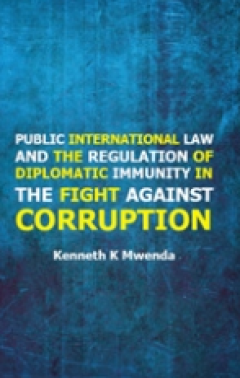
Public International Law and the Regulation of Diplomatic Immunity in the Fig…
Juxtaposed between anti-corruption initiatives and the principles of public international law pertaining to diplomatic immunity, this book critically examines the scope and limitations of diplomatic immunity in the fight against corruption. In a world where a very large number of States depend on richer nations for economic aid, it is inevitable that the old rule of non-interference in internal…
- Edisi
- -
- ISBN/ISSN
- 978-0-9869857-9-9
- Deskripsi Fisik
- 224 hlm.
- Judul Seri
- -
- No. Panggil
- -
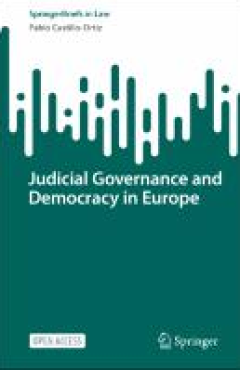
Judicial Governance and Democracy in Europe
Amid the growing debate about models of judicial governance and their relationship to democratic quality, this book offers a systematic and empirical study of this relationship. The book thereby contributes to filling in this gap for the European continent. Taking an interdisciplinary politics and law perspective, and combining empirical and theoretical considerations, the book addresses the im…
- Edisi
- -
- ISBN/ISSN
- 978-3-031-20190-5
- Deskripsi Fisik
- 96 hlm.
- Judul Seri
- -
- No. Panggil
- -
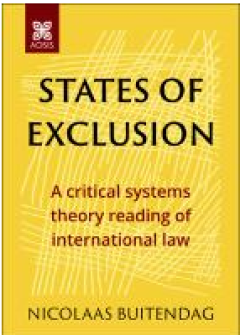
States of Exclusion: A Critical Systems Theory Reading of International Law
The theoretical underpinnings of public international law have taken the sovereign status of the nation-state for granted since the beginning of the modern era. After centuries of evolution in legal and political thought, the state's definition as a bounded territorial unit has been strictly codified. The legal development of the nation-state was an ideological project informed by extra-legal c…
- Edisi
- -
- ISBN/ISSN
- 978-1-77995-241-7
- Deskripsi Fisik
- 232 hlm.
- Judul Seri
- -
- No. Panggil
- -
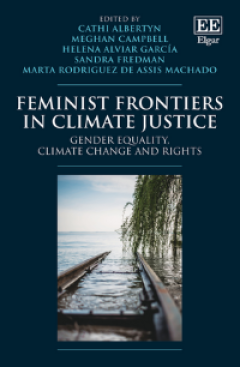
Feminist Frontiers in Climate Justice: Gender Equality, Climate Change and Ri…
Feminist Frontiers in Climate Justice provides a compelling demonstration of the deeply gendered and unequal effects of the climate emergency, alongside the urgent need for a feminist perspective to expose and address these structural political, social and economic inequalities. Taking a nuanced, multidisciplinary approach, this book explores new ways of thinking about how climate change intera…
- Edisi
- -
- ISBN/ISSN
- 978-1-80392-379-6
- Deskripsi Fisik
- 318 hlm.
- Judul Seri
- -
- No. Panggil
- -
 Karya Umum
Karya Umum  Filsafat
Filsafat  Agama
Agama  Ilmu-ilmu Sosial
Ilmu-ilmu Sosial  Bahasa
Bahasa  Ilmu-ilmu Murni
Ilmu-ilmu Murni  Ilmu-ilmu Terapan
Ilmu-ilmu Terapan  Kesenian, Hiburan, dan Olahraga
Kesenian, Hiburan, dan Olahraga  Kesusastraan
Kesusastraan  Geografi dan Sejarah
Geografi dan Sejarah